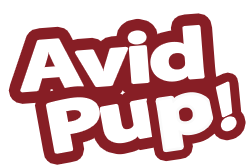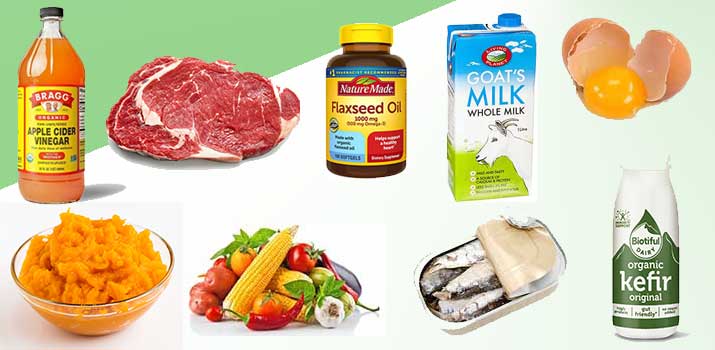Commercial dog food has come a long way in the past couple of decades. Whether you provide dry kibble or wet canned food, it’s no longer just butcher’s leftovers!
Today, dog food is specially formulated to provide a balanced diet that closely resembles a wild canine’s meals.
But of course, there’s always room for improvement.
Even the most top-shelf dog food could use a little extra boost. Canine health is complex. A single dog food product can’t meet the needs of every canine out there.
While there are specialty foods to address specific concerns, your best bet for full customization is to use a booster.
Food boosters are simple ingredients or supplements you can add to your pup’s standard meals.
A booster can take commercial foods to a new level. Not only do boosters make food more delicious for your pup, but they can also provide a slew of health benefits.
As always, it’s important to consult with your doctor before you make any major changes to your pup’s diet. Boosters can do a lot to improve your dog’s health. But, they will only do that if you use them correctly.
Most vets will recommend replacing no more than 25 to 50 percent of the commercial food with boosters.
Even then, you must plan accordingly and only provide the ingredients that will actively support their health.
Here are some of the best food boosters you can add to your dog’s meal to improve their health.
10 Health Improving Foods You Can Add to Your Dogs Regular Meal
#1. Raw Eggs
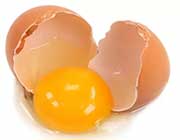
You’d be hard-pressed to find a snack that has as much nutrition per gram as raw eggs.
Eggs cover a lot of bases. They’re an excellent source of calcium, provide a boost of protein, and give your dog a myriad of nutrients. They contain selenium, iron, Vitamin A, folate, and more.
Adding a raw egg to your dog’s meal every once in a while can do a lot to improve their health. Plus, most dogs can’t resist the taste that runny eggs have to offer!
Feeding raw eggs to dogs is a point of contention for dog owners. Most dogs are perfectly equipped to deal with the bacteria in raw eggs.
The stomach acids kill off bacteria and make quick work of the whites, yolk, and shell. However, there are still some risks if you’re not careful.
Always source your eggs from a reliable farm. If you’re still on the fence, you can always cook the egg first. It loses some of its nutritional value, but it’s better than not having any eggs at all.
#2. Sardines

Yes, those polarizing fish you see on pizzas every once in a while make for great dog food boosters! There are a couple of reasons why you should consider sardines.
For one, they are a fantastic source of omega fatty acids.
Omega 3 fatty acids like DHA and EPA can do a lot to improve your dog’s overall health.
It boosts the circulatory system, nourishes the coat, and is said to help regulate the immune system.
The fatty acids can also reduce inflammation and improve brain health. Who doesn’t want that for their dog?
Sardines also contain taurine, an essential amino acid that dogs cannot synthesize independently.
Canned sardines are pretty cheap and easy to source.
Make sure to provide this booster sparingly. Too much of it can certainly lead to weight gain if you overdo it!
#3. Digestive Enzymes (goats milk)
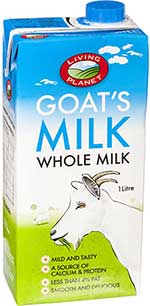
The term “digestive enzymes” covers a wide gamut of boosters you can provide. Essentially, it’s an ingredient that can improve your dog’s gut health.
We’re talking about foods like plain yogurt and goat’s milk.These foods are chock-full of probiotics.
What are probiotics? Well, they’re essentially live bacteria that support the gastrointestinal tract.
While it doesn’t sound appealing to feed your dog bacteria, this is the good bacteria that your dog needs to process foods efficiently.
Goat’s milk is the preferred choice if it’s available. The milk is easier on the system and a much better choice for dogs who are lactose intolerant.
The milk is hypoallergenic and provides all the gut-healing benefits your pooch needs.
#4. Fruits and Vegetables
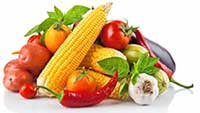
Of course, you can’t go wrong with fruits and vegetables.
Commercial dog foods are very protein-focused. While dogs are largely carnivores in the wild, they’re not obligate carnivores.
They can eat fruits and vegetables to get some extra health benefits.
Many commercial foods lack fruits and vegetables, so providing some extras is a great way to supplement your dog’s diet.
Use all-natural and organic foods to provide essentials your pooch might be lacking.
For example, you can offer up some fibrous vegetables for dogs with loose stool issues or sweet berries for those that need some antioxidants.
Make sure to avoid all of the known toxic ingredients like onions and garlic.
It’s fine to feed plant-based foods raw. But some dogs will not touch them unless it’s incorporated into the meaty part of the meal.
If that’s the case, try steaming them for a soft and mushy texture.
#5. Pumpkin Puree
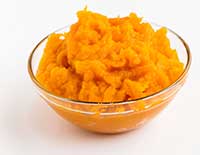
You can’t go wrong with pumpkin puree!
We’re not talking about the sweet stuff you taste in pies. We’re talking about unflavored and all-natural puree here.
Pumpkins are an excellent ingredient that many dog foods utilize. It’s a complex carb that helps to regulate blood sugar levels and glucose absorption.
Not only that, but it’s high in soluble fiber!
A bit of pumpkin in your dog’s diet will firm things right up, keeping them more regular.
Pumpkin is high in antioxidants and vitamins, too.You can provide puree with the kibble raw. Or, you can use it to make some tasty treats
#6. Bone Broth

Have a dog that’s not super keen on drinking water? Bone broth is your friend!
Bone broth is basically water that’s boiled with animal bones. The essence of the bone infuses with the water, creating a flavorful elixir with a slew of benefits.
This broth is said to heal gut issues, promote proper digestion, and encourage liver detoxification. It may also help with joint pain!
More importantly, however, is its ability to hydrate your dog. You can pour it onto your pup’s meal to create a tasty soup.
Alternatively, you can freeze it up and provide some cubes as a tasty snack. Whatever the case may be, it gives your pup a nice boost of hydration.
#7. Healthy Oils
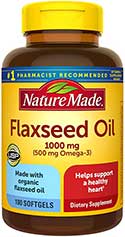
When most people think of oil, they automatically picture unhealthy fats.
While it’s true that excess fat is a big no-no, your dog needs some fat to stay in good shape. Beneficial fats like coconut oil, salmon oil, and flaxseed oil are the way to go.
A couple of teaspoons go a long way! These healthy oils contain omega fatty acids that can support skin health and boost the immune system.
They can also address inflammatory issues and help keep allergic reactions at bay. Pair that with the integrated antioxidants and brain support, and you have a must-have booster!
#8. Apple Cider Vinegar

This might sound a bit smelly and unpalatable, but hear us out!
Apple cider vinegar is a powerful supplement that can work wonders on your dog’s digestive health. We see it all the time in human health, so why not extend its benefits to your dog?
You see, apple cider vinegar works to lower the pH level in your dog’s gut.
Canine stomachs are naturally acidic, which is how they can handle raw meats without missing a beat.
Unfortunately, some medications and foods can make the gut environment too alkaline.
Apple cider vinegar keeps the acidity in check and promotes the growth of healthy bacteria. The vinegar has naturally antibacterial properties and acts as a constipation reliever, too.
It’s also said to reduce gas- a perk everyone can appreciate!
#9. Kefir
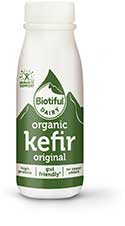
Kefir is a unique drink that’s usually made of fermented cow or goat’s milk. We already went over the benefits of adding digestive enzymes. But, kefir is so powerful it deserves its own unique mention.
Many refer to kefir as the “grain of life.” It’s potent and comes with many supposed benefits.
The substance is chock-full of probiotics and beneficial yeasts. Not only does this help improve the gut environment, but it helps to keep fungal infections at bay.
Bad yeast infections are pretty common in dogs because of the high carbohydrate content of commercial foods. Kefir balances things out a bit.
The good yeasts fight the bad, putting an end to major fungal problems.
Kefir may also address allergies, fight bacteria, and more. Plus, it has tons of great nutrients and vitamins.
#10. Raw Meats
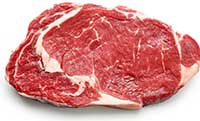
Finally, we have raw meats. Another controversial topic in the dog community, you’ll hear a lot of differing opinions about raw meat. Some avoid it completely, while others feed raw meat exclusively.
The truth is that raw meat from a reliable source has a lot to offer. We must emphasize the “reliable” part! Questionable byproducts and mystery meats are a no-go!
Healthy meats, however, are perfectly fine!
As we mentioned earlier, your dog’s gut is primed to take care of bacteria. All wild dogs have access to is raw meat, so it’s not a major issue for most dogs.
Raw meats help to supplement the protein content of commercial foods. They can also help with joint health.
High-cartilage meats from poultry are particularly beneficial. All the connective tissue and sinew can benefit the joints and help reduce the effects of arthritis.
Conclusion
Have a conversation with your vet about which food boosters are best for your dog. These natural boosters can give your dog a well-rounded diet that’s catered to their needs.
Use them to customize a meal plan and help your pooch reach optimal health!
Also Read: 10 Mistakes to Avoid When Storing Dog Food

